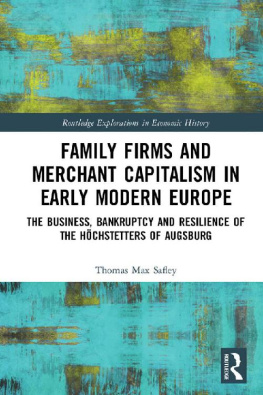
Raleigh and the British Bicycle Industry
Modern Economic and Social History Series
General Editor: Derek H. Aldcroft
Titles in this series include:
Studies in the Interwar European Economy
Derek H. Aldcroft
Whatever Happened to Monetarism?
Economic Policy-Making and Social Learning in the United Kingdom
since 1979
Michael J. Oliver
Disillusionment or New Opportunities?
The Changing Nature of Work in Offices, Glasgow 1880-1914
R. Guerriero Wilson
Raleigh and the British Bicycle Industry:
An Economic and Business History, 1870-1960
Roger Lloyd-Jones and M. J. Lewis
Battles for the Standard:
Bimetallism and the Spread of the Gold Standard, 1870-1914
Edward R. Wilson
The British Footwear Industry
Peter R. Mounfield
Trade Unions and the Economy, 1870-2000
Derek H. Aldcroft and Michael J. Oliver
The British Electronics Industry:
Innovation, Markets and Performance, 1930-97
John F. Wilson
The Seaside, Health and the Environment since 1850
John Hassan
Exchange Rate Regimes and Economic Policy in the Twentieth Century
edited by Ross Catterall and Derek H. Aldcroft
Raleigh and the British Bicycle Industry
An Economic and Business History, 18701960
ROGER LLOYD-JONES and M. J. LEWIS, with the assistance of MARK EASON
First published 2000 by Ashgate Publishing
Published 2017 by Routledge
2 Park Square, Milton Park, Abingdon, Oxon OX14 4RN
711 Third Avenue, New York, NY 10017, USA
Routledge is an imprint of the Taylor & Francis Group, an informa business
Copyright Roger Lloyd-Jones and M. J. Lewis, 2000
The authors have asserted their moral right under the Copyright, Designs and Patents Act, 1988, to be identified as the authors of this work.
All rights reserved. No part of this book may be reprinted or reproduced or utilised in any form or by any electronic, mechanical, or other means, now known or hereafter invented, including photocopying and recording, or in any information storage or retrieval system, without permission in writing from the publishers.
Notice:
Product or corporate names may be trademarks or registered trademarks, and are used only for identification and explanation without intent to infringe.
British Library Cataloguing in Publication Data
Roger Lloyd-Jones.
Raleigh and the British Bicycle Industry: An Economic and
Business History, 18701960.
(Modern Economic and Social History)
1. Raleigh. 2. Bicycle industryGreat BritainHistory.
I. Title. II. Lewis, M. J. (Mervyn J.), 1957 . III. Eason, Mark.
338.762922720941
Library of Congress Cataloging-in-Publication Data
Roger Lloyd-Jones, 1944
Raleigh and the British bicycle industry: an economic and business
history, 18701960/Roger Lloyd-Jones and M. J. Lewis.
(Modern Economic and Social History)
Includes bibliographical references and indexes.
ISBN 1-85928-457-4
1. Raleigh Cycle Co.History. 2. Bicycle industryGreat BritainHistory.
I. Lewis, M. J. (Mervyn J.), 1957 . II. Eason, Mark, 1957 . III. Title.
IV. Series.
HD9993.B544R355 2000
338.762922720941dc21
9945176
CIP
Typeset in Sabon by Manton Typesetters, Louth, Lincolnshire, UK.
ISBN 13: 978-1-85928-457-5 (hbk)
Contents
Modern Economic and Social History Series General Editors Preface
Economic and social history has been a flourishing subject of scholarly study during recent decades. Not only has the volume of literature increased enormously but the range of interest in time, space and subject matter has broadened considerably so that today there are many sub-branches of the subject which have developed considerable status in their own right.
One of the aims of this new series is to encourage the publication of scholarly monographs on any aspect of modern economic and social history. The geographical coverage is world-wide and contributions on non-British themes will be especially welcome. While emphasis will be placed on works embodying original research, it is also intended that the series should provide the opportunity to publish studies of a more general and thematic nature which offer a reappraisal or critical analysis of major issues of debate.
Derek H. Aldcroft
Manchester Metropolitan University
There are two outstanding debts which the authors wish to acknowledge. One is to the scholar who should have written this book, A. E. Harrison, whose work on the early bicycle industry is a model of economic and business history at its best. As one of the authors was taught by Tony Harrison at the University of York, there is considerable satisfaction in continuing his work and in drawing attention to his primary research into the bicycle industry. The other debt is to Professor Derek Aldcroft who, after hearing a paper on Raleigh Industries at a Northern Economic History Conference, suggested the idea of writing a business history of the industry, and then helped facilitate a commission with Ashgate Publishing. We would like to record our thanks to Dr Mark Eason who has contributed to the research work, particularly on the BSA records, and produced the original draft of . The various facets of the book have been discussed with a number of colleagues over the past few years; we would particularly like to thank Professor Peter Cain, Professor John Wilson and Dr Andrew Popp who have provided some lively insights into notions such as personal capitalism, industrial districts and business networks. A paper by Professor Cain on the ideas of Ruskin on intrinsic value also provided insights into the notions of quality and craft traditions which permeated the British bicycle industry. We would also like to record the help and assistance of archivists and librarians at Nottingham Record Office, the home of the Raleigh papers, Coventry Record Office and Central Library, and Birmingham Central Library. Our research work was greatly helped by sabbatical terms granted by the Cultural Research Institute at Sheffield Hallam University. Last, and by no means least, our thanks go to Ishbel Lewis, whose proofreading skills and great patience in reading our numerous drafts provided a quality control much in advance of our meagre efforts.
Roger Lloyd-Jones and M. J. Lewis
1999
CHAPTER ONE
Introduction: Raleigh and the British bicycle industry
A basic theme of this book, providing the connecting thread throughout, is that of enterprise. For Joseph Schumpeter enterprise was essentially about the mechanism of economic change. Economic and business life is not a passive process, where business firms and other economic agents merely engage in smooth and uniquely determined adaptations to changing data. Rather, the business environment rarely remains stable for any length of time, and if we were to assume that it did we would be distorting the picture of most ordinary business practices. It follows, then, that historical analysis must play a crucial role in understanding the role of enterprise and economic and business change. Entrepreneurs cannot be reduced to the fable of the rational economic man, so enshrined by neo-classical economic theory. On the contrary, as Schumpeter reminds us,












